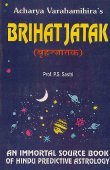Sloka, Śloka: 19 definitions
Introduction:
Sloka means something in Buddhism, Pali, Hinduism, Sanskrit, Jainism, Prakrit, Marathi, Hindi. If you want to know the exact meaning, history, etymology or English translation of this term then check out the descriptions on this page. Add your comment or reference to a book if you want to contribute to this summary article.
The Sanskrit term Śloka can be transliterated into English as Sloka or Shloka, using the IAST transliteration scheme (?).
In Hinduism
Chandas (prosody, study of Sanskrit metres)
Source: Shodhganga: a concise history of Sanskrit Chanda literature1) Śloka (श्लोक) (or Anuṣṭubh) refers to one of the 27 metres mentioned in the Suvṛttatilaka ascribed to Kṣemendra (11th century). The Suvṛttatilaka is a monumental work of Sanskrit prosody considered as unique in its nature. In this work Kṣemendra neither introduces any new metre nor discusses all the metres used in his time. He discusses 27 popular metres (e.g., Śloka) which were used frequently by the poets.
2) Śloka (श्लोक) refers to one of the 34 varṇavṛttas (syllabo-quantitative verse) dealt with in the Vṛttamaṇimañjūṣā, whose authorship could be traced (also see the “New Catalogus Catalogorum” XXXI. p. 7).
3) Śloka (श्लोक).—Garuḍapurāṇa classifies the term śloka as when the usual order of laghu and guru differs. It is also called as śloka. About yati it tells that when there is a pause it is called as yati.

Chandas (छन्दस्) refers to Sanskrit prosody and represents one of the six Vedangas (auxiliary disciplines belonging to the study of the Vedas). The science of prosody (chandas-shastra) focusses on the study of the poetic meters such as the commonly known twenty-six metres mentioned by Pingalas.
Jyotisha (astronomy and astrology)
Source: Wikibooks (hi): Sanskrit Technical TermsŚloka (श्लोक).—Verse, especially a verse in anuṣṭubha meter. Note: Śloka is a Sanskrit technical term used in ancient Indian sciences such as Astronomy, Mathematics and Geometry.

Jyotisha (ज्योतिष, jyotiṣa or jyotish) refers to ‘astronomy’ or “Vedic astrology” and represents the fifth of the six Vedangas (additional sciences to be studied along with the Vedas). Jyotisha concerns itself with the study and prediction of the movements of celestial bodies, in order to calculate the auspicious time for rituals and ceremonies.
Vaishnavism (Vaishava dharma)
Source: Pure Bhakti: Bhagavad-gita (4th edition)Śloka (श्लोक) refers to “verse in Sanskrit composition”. (cf. Glossary page from Śrīmad-Bhagavad-Gītā).
Source: Pure Bhakti: Bhajana-rahasya - 2nd EditionŚloka (श्लोक) refers to:—A Sanskrit verse. (cf. Glossary page from Bhajana-Rahasya).

Vaishnava (वैष्णव, vaiṣṇava) or vaishnavism (vaiṣṇavism) represents a tradition of Hinduism worshipping Vishnu as the supreme Lord. Similar to the Shaktism and Shaivism traditions, Vaishnavism also developed as an individual movement, famous for its exposition of the dashavatara (‘ten avatars of Vishnu’).
General definition (in Hinduism)
Source: WikiPedia: HinduismSloka (श्लोक): A verse of lines in Sanskrit, typically recited as a prayer.
In Buddhism
Mahayana (major branch of Buddhism)
Source: academia.edu: A Study and Translation of the Gaganagañjaparipṛcchā1) Śloka (श्लोक) (Cf. Abhigīta) refers to “verses”, according to the Gaganagañjaparipṛcchā: the eighth chapter of the Mahāsaṃnipāta (a collection of Mahāyāna Buddhist Sūtras).—Accordingly, “As soon as the Bodhisattva, the great being Gaganagañja said these verses (śloka), the pavilions in the sky of the Mahāvyūha universe has been shaken (pracalita) in six ways. Then a voice resounded from open space (antarīkṣa), saying: ‘[...]’”.
2) Śloka (श्लोक) refers to “fame”, according to the Gaganagañjaparipṛcchā.—Accordingly, “Then the Bodhisattva Gaganagañja, having praised the Lord with these verses, addressed himself to the Lord: ‘[...] Since the Lord has no desire, he is satisfied with insight and free from gain, honor and fame (lābha-satkāra-śloka). Since the Lord is omniscient (sarvajña), his mode of five eyes is purified and sees everything’. [...]’”.

Mahayana (महायान, mahāyāna) is a major branch of Buddhism focusing on the path of a Bodhisattva (spiritual aspirants/ enlightened beings). Extant literature is vast and primarely composed in the Sanskrit language. There are many sūtras of which some of the earliest are the various Prajñāpāramitā sūtras.
In Jainism
General definition (in Jainism)
Source: archive.org: TrisastisalakapurusacaritraŚloka (श्लोक) refers to the epic meter, according to chapter 1.2 [ādīśvara-caritra] of Hemacandra’s 11th century Triṣaṣṭiśalākāpuruṣacaritra: an ancient Sanskrit epic poem narrating the history and legends of sixty-three illustrious persons in Jainism. Accordingly, “[...] After reciting a hymn of praise delightful with various dhruvakas, ślokas, utsāhas and skandhakas also, with galitas, vastuvadanas, and prose, the Indra of Acyuta with, his gods slowly emptied the pitchers over the Lord of the World. Being turned over the Master’s head, the water-pitchers shone like rain-clouds over the peak of Sumeru”.

Jainism is an Indian religion of Dharma whose doctrine revolves around harmlessness (ahimsa) towards every living being. The two major branches (Digambara and Svetambara) of Jainism stimulate self-control (or, shramana, ‘self-reliance’) and spiritual development through a path of peace for the soul to progess to the ultimate goal.
Languages of India and abroad
Marathi-English dictionary
Source: DDSA: The Molesworth Marathi and English Dictionaryślōka (श्लोक).—m (S) A verse, a stanza, a quantity of two lines.
Marathi is an Indo-European language having over 70 million native speakers people in (predominantly) Maharashtra India. Marathi, like many other Indo-Aryan languages, evolved from early forms of Prakrit, which itself is a subset of Sanskrit, one of the most ancient languages of the world.
Sanskrit dictionary
Source: DDSA: The practical Sanskrit-English dictionaryŚloka (श्लोक).—[ślok-ac]
1) Praising in verse, extolling.
2) A hymn or verse of praise.
3) Celebrity, fame, renown, name; as in पुण्यश्लोक (puṇyaśloka) q. v.; वैदेहि तावदमलो भुवनेषु पुण्यः श्लोकः प्रशस्तचरितैरुपगीयतां ते (vaidehi tāvadamalo bhuvaneṣu puṇyaḥ ślokaḥ praśastacaritairupagīyatāṃ te) Mv.7.26; उत्तमश्लोक° (uttamaśloka°) Bhāgavata 2.1.9.
4) An object of praise.
5) A proverb or saying.
6) A stanza or verse in general; श्लोकत्वमापद्यत यस्य शोकः (ślokatvamāpadyata yasya śokaḥ) R.14.7; समक्षरैश्चतुर्भिर्यः पादैर्गीतो महर्षिणा । सोऽनुव्याहरणाद्- भूयः शोकः श्लोकत्वमागतः (samakṣaraiścaturbhiryaḥ pādairgīto maharṣiṇā | so'nuvyāharaṇād- bhūyaḥ śokaḥ ślokatvamāgataḥ) || Rām.1.2.4.
7) A stanza or verse in the Anuṣṭubh metre.
8) The dear and beloved people (iṣṭamitra ?); यथा ह वै पदेनानुविन्देदेवं कीर्तिं श्लोकं विन्दते (yathā ha vai padenānuvindedevaṃ kīrtiṃ ślokaṃ vindate) Bri. Up.1.4.7.
Derivable forms: ślokaḥ (श्लोकः).
Source: Cologne Digital Sanskrit Dictionaries: Shabda-Sagara Sanskrit-English DictionaryŚloka (श्लोक).—m.
(-kaḥ) 1. A verse, a stanza. 2. A stanza written in Anush- tub'h metre. 3. Praising, praise. 4. An object of praise. 5. A proverb, a saying. 6. Fame, celebrity. E. ślok to compose, (as veses,) aff. ac; according to the Ramayana, irrly. derived from śoka sorrow: the first verse ever composed, having been the involuntary expression of Valmiki'S grief at beholding a bird killed by a fowler.
Source: Cologne Digital Sanskrit Dictionaries: Benfey Sanskrit-English DictionaryŚloka (श्लोक).—i. e. śru + ka, m. 1. Fame. 2. A verse, [Pañcatantra] 106, 8; a saying,
Śloka (श्लोक).—[masculine] sound, noise, report, fame; strophe, stanza, [especially] the epic Śloka.
Source: Cologne Digital Sanskrit Dictionaries: Monier-Williams Sanskrit-English Dictionary1) Śloka (श्लोक):—[from ślok] m. ([probably] connected with √1. śru, [Rāmāyaṇa i, 2, 33] gives a fanciful derivation [from] śoka, ‘sorrow’, the first śloka having been composed by Vālmīki grieved at seeing a bird killed) sound, noise (as of the wheels of a carriage or the grinding of stones etc.), [Ṛg-veda]
2) [v.s. ...] a call or voice (of the gods), [ib.]
3) [v.s. ...] fame renown, glory, praise, hymn of praise, [ib.; Atharva-veda; Taittirīya-saṃhitā; Brāhmaṇa; Bhāgavata-purāṇa]
4) [v.s. ...] a proverb, maxim, [Monier-Williams’ Sanskrit-English Dictionary]
5) [v.s. ...] a stanza, ([especially]) a [particular] kind of common epic metre (also called Anu-ṣṭubh q.v.; consisting of 4 Pādas or quarter verses of 8 syllables each, or 2 lines of 16 syllables each, each line allowing great liberty except in the 5th, 13th, 14th and 15th syllables which should be unchangeable as in the following scheme, 8. 1. 8-8., the dots denoting either long or short; but the 6th and 7th syllables should be long; or if the 6th is short the 7th should be short also), [Śatapatha-brāhmaṇa; Kauṣītaki-upaniṣad; Mahābhārata] etc.
6) [v.s. ...] Name of a Sāman, [Ārṣeya-brāhmaṇa]
Source: Cologne Digital Sanskrit Dictionaries: Yates Sanskrit-English Dictionary1) Śloka (श्लोक):—(ḹ, ṅa) ślokate 1. d. To put together, to compose verses; to be composed.
2) (kaḥ) 1. m. A verse, stanza; fame.
Source: DDSA: Paia-sadda-mahannavo; a comprehensive Prakrit Hindi dictionary (S)Śloka (श्लोक) in the Sanskrit language is related to the Prakrit words: Saloga, Siloa, Siloga.
[Sanskrit to German]
Sanskrit, also spelled संस्कृतम् (saṃskṛtam), is an ancient language of India commonly seen as the grandmother of the Indo-European language family (even English!). Closely allied with Prakrit and Pali, Sanskrit is more exhaustive in both grammar and terms and has the most extensive collection of literature in the world, greatly surpassing its sister-languages Greek and Latin.
Hindi dictionary
Source: DDSA: A practical Hindi-English dictionaryŚloka (श्लोक) [Also spelled shlok]:—(nm) a (Sanskrit) couplet; hymn of praise; praise, glory; ~[baddha] composed into a [śloka], versified.
...
Kannada-English dictionary
Source: Alar: Kannada-English corpusŚlōka (ಶ್ಲೋಕ):—
1) [noun] a hymn praising a deity or a venerable person.
2) [noun] fame; renown; glory.
3) [noun] (pros.) a metrical verse having four lines each of eight syllbles, of which fifth and sixth must be short and long respectively in each line and the seventh syllable of first, second and fourth lines being short.
4) [noun] (pros.) another metre having two lines in each verse.
Kannada is a Dravidian language (as opposed to the Indo-European language family) mainly spoken in the southwestern region of India.
Nepali dictionary
Source: unoes: Nepali-English DictionaryŚloka (श्लोक):—n. verse; stanza; poetry; couplet;
Nepali is the primary language of the Nepalese people counting almost 20 million native speakers. The country of Nepal is situated in the Himalaya mountain range to the north of India.
See also (Relevant definitions)
Starts with (+12): Shlokabaddha, Shlokabhinayana, Shlokabhishma, Shlokabhu, Shlokacarana, Shlokadhikara, Shlokadipika, Shlokadvaya, Shlokadvayavyakhya, Shlokagautama, Shlokakalanirnaya, Shlokakara, Shlokakrit, Shlokam, Shlokamatra, Shlokapancaka, Shlokapancakavivarana, Shlokardha, Shlokasamgraha, Shlokashataka.
Ends with (+40): Adholoka, Adirasashloka, Anushloka, Anushtupshloka, Anuvamshashloka, Ardhashloka, Arjunashloka, Ashirvadashloka, Ashloka, Ashtottarashatasthalashloka, Bhaktishloka, Bhavadashaphalashloka, Bhrajashloka, Brihatshloka, Cakrashloka, Canakyashloka, Caramashloka, Catushloka, Chandahshloka, Chhandahshloka.
Full-text (+4183): Ardhashloka, Shlokakara, Pratishlokam, Yavakchlokam, Madhura, Shlok, Pratishloka, Shlokabaddha, Antyakshari, Shlokacarana, Para, Shlokamatra, Yugalaka, Shlokayantra, Catuppadaka, Vishloka, Banavali, Upashlokaya, Ashtaratna, Mitra.
Relevant text
Search found 165 books and stories containing Sloka, Shloka, Śloka, Ślōka, Sḷōka; (plurals include: Slokas, Shlokas, Ślokas, Ślōkas, Sḷōkas). You can also click to the full overview containing English textual excerpts. Below are direct links for the most relevant articles:
Rig Veda (translation and commentary) (by H. H. Wilson)
Samkhya thoughts in the Mahabharata (by Shini M.V.)
Introduction to the Śāntiparva < [Chapter 3 - The Philosophical Tenets in the Śānti-parva]
Sāṃkhya philosophy in the Śānti-parva and (Introduction) < [Chapter 4 - Sāṃkhya thoughts in the Śānti-parva of Mahābhārata]
Introduction to the Mahābhārata < [Chapter 1 - Introduction]
Prashna Upanishad with Shankara’s Commentary (by S. Sitarama Sastri)
Verse 3.11 < [Prashna III - The origin and nature of Prana]
Verse 1.10 < [Prashna I - The spiritual paths of the Moon and the Sun]
Verse 4.10 < [Prashna IV - Mental states and Bliss]
The Devi Bhagavata Purana (by Swami Vijñanananda)
Chapter 3 - On praising the Purāṇas and on each Vyāsa of every Dvāpara Yuga < [Book 1]
Chapter 14 - On the recitation of the fruits of this Purāṇam < [Book 12]
Chapter 2 - On questions put by Śaunaka and other Rsis < [Book 1]
Naishadha-charita of Shriharsha (by Krishna Kanta Handiqui)
The Commentaries and the Text of the Naiṣadha < [Introduction]
Srila Gurudeva (The Supreme Treasure) (by Swami Bhaktivedanta Madhava Maharaja)
Kṛṣṇa Smaraṇa—Remembering Kṛṣṇa (with His Dearmost Associates) < [Chapter 2.12 - Early ISKCON Conversations with Śrīla Gurudeva]
Remembering Kṛṣṇa’s pastimes and serving in separation < [Chapter 2.12 - Early ISKCON Conversations with Śrīla Gurudeva]
Worship of the Demigods < [Chapter 1.3 - The Preaching of Śrī Narottamānanda Prabhu to Śrīla Gurudeva]
Related products
(+2 more products available)





